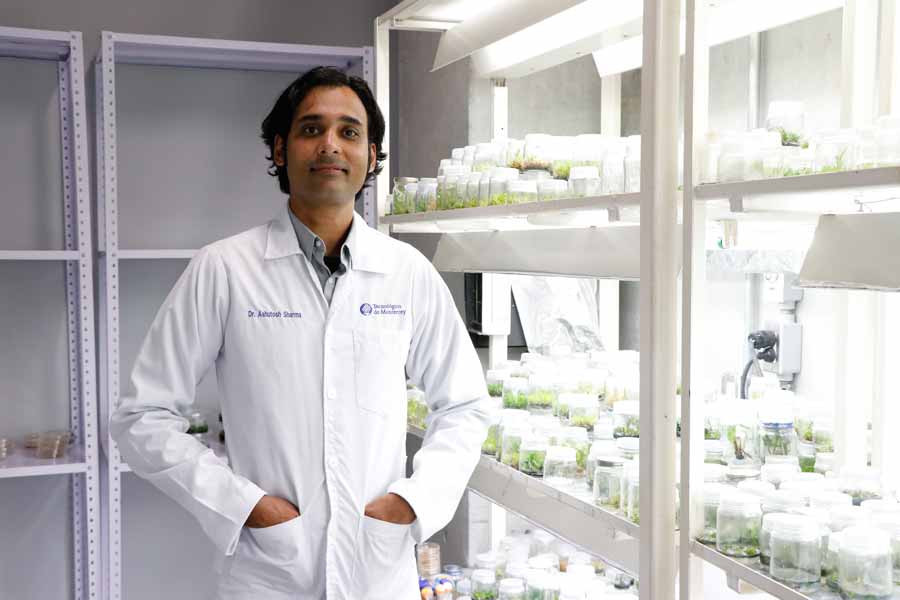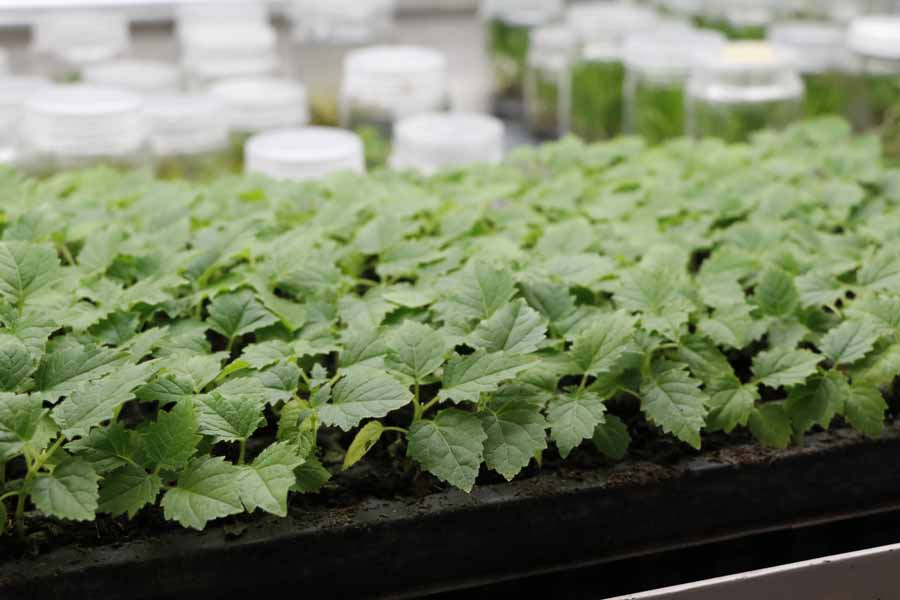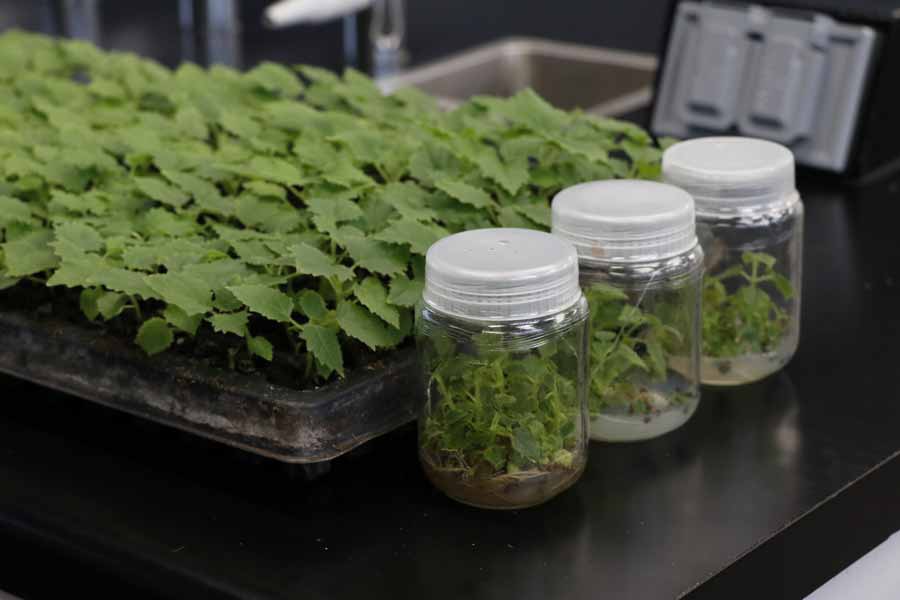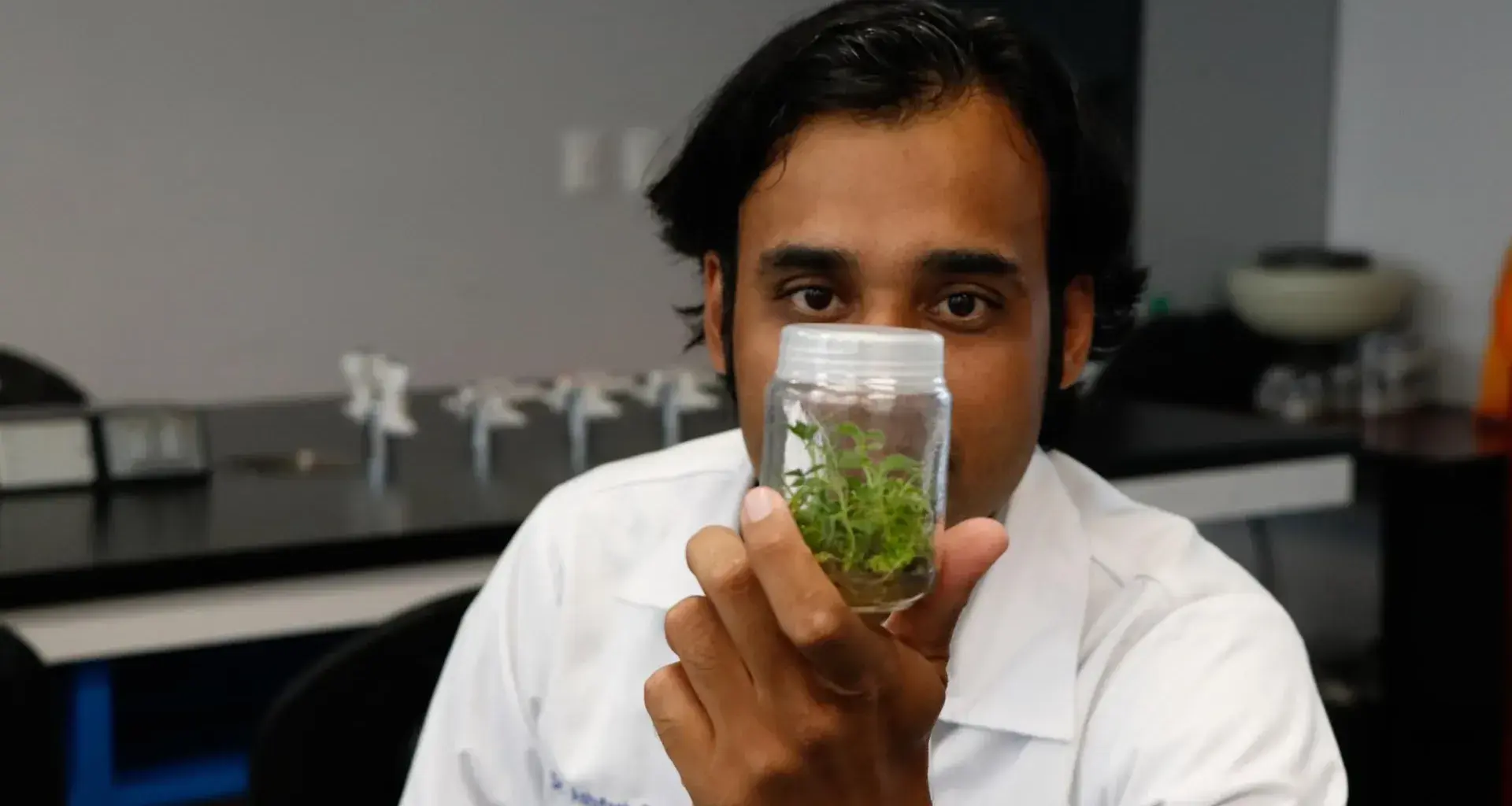As the result of a project by Tec de Monterrey and the company Materra Forestal, some 2,000 trees of the Paulownia species are being grown over eight hectares at the heart of Mexico, in Amealco, Querétaro.
These are cloned trees, created through micropropagation, which is a set of techniques that takes sections of plant tissue or structures to cultivate them under artificial conditions in order to generate complete plants that are genetically identical.
The technology was developed in the laboratory of the Querétaro campus Bioengineering Center run by Ashutosh Sharma, after Materra Forestal asked the Tec for help.
“Micropropagation was the key for cloning them. There’s no other method that could beat it. It’s a solution to 21st century agricultural problems,” explains Sharma, an Indian scientist who has received multiple awards for his scientific work and who joined the Tec as a researcher in 2012.
“It’s a modern and innovative technology. There are very few plants and crops that people have been able to commercialize based on this technology,” he emphasizes.

For Felipe Alcocer, director and founder of Materra Forestal, this is the realization of a dream that began after taking a trip to Australia and New Zealand to see timber production on a large scale. Alcocer, who is also a Tec graduate, thought about how he could start a business of this kind in Mexico and began looking at different options for timber trees.
“After looking at everything there was on the market, I narrowed it down to Paulownia, which is the fastest growing tree in the world and its timber is classified as semiprecious. What’s more, you don’t cut it down, you just prune it,” explains the agronomist when talking about what is also called ‘the tree of the future.’
Alcocer says that his project gained a great deal by teaming up with the Tec. “These plants are 100% pathogen-free. They don’t have any infections. One important consideration was not introducing any disease that could be inherited from another site,” he says. Thanks to this development, there was no need to import the trees.
Now that they have validated the system, the next step will be to set up a laboratory occupying approximately 500 square meters and areas for greenhouses and acclimatization, run by the Tec.

Sharma emphasizes that the technique they developed will help achieve other objectives such as saving Mexican endemic plants with pharmacological potential, which is part of NatProlab, a strategic project in the bioengineering department’s south-central region.
“As a university, we have the talent and infrastructure that companies don’t have. They have the resources, but they don’t have the vision: we can solve problems and develop technology that will generate jobs, improve the economy, the environment and, in the end, impact the world“, adds Sharma.
As he concludes: “So that these problems are not kept there or sent to another country. Here in Mexico, we have all the capacity to solve them.”

READ ALSO:





